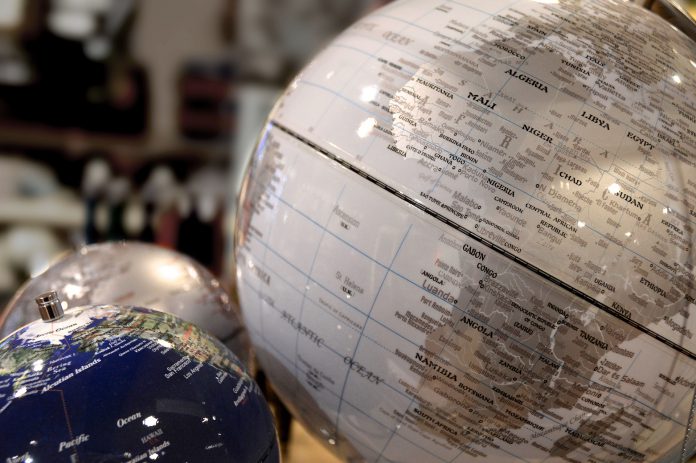FinTech in Africa is not improving a traditional financial ecosystem, it is creating one. It is estimated that around 66% of the adult population on the continent is unbanked, but the time for change is now and FinTech is the way to do that.
Africa is the second largest continent in terms of population. A staggering 1.3 billion?people live there, which is the equivalent of around 16.72% of? the world’s population. This means that around 858 million people are unbanked. To put that in perspective, that is greater than Europe population. In fact, the unbanked population alone, would make Africa the second largest continent in the world.
The opportunity for filling this gap in Africa financial space is huge, but it is not a simple fix. Corrie Bakker, head of business development and strategy at PayU Africa, said, ?As a continent, Africa lacks the legacy infrastructure that forms the basis of traditional financial service systems in developed markets. Deploying financial services requires an innovative approach that takes into account the different countries, currencies and cultures within Africa.p>
Digital payments could be the way to help consumers in the continent get better access to financial services and lower than number of unbanked. This is a key time to offer these types of services simply because ?consumers are hungry for inclusion,Bakker said. ?Smartphone penetration has been rapidly growing each year in Africa, with current estimates suggesting there are around 690 million devices in Sub-Saharan Africa, alone. These devices have become a popular mode of accessing financial services, with data from Statista claiming consumers in the whole of Africa completed 24.46 billion mobile money transactions in 2019, representing 64.12% of all global transactions. Sub-Saharan African countries exchanged a total of $456.4bn.
There is clearly a major opportunity for FinTech platforms in Africa and consumers are eagerly engaging with them. FinTechs are capitalising on the gap in the market, with Tellimer claiming there to be around 400 companies across the continent. Investors have also noticed the important role FinTech can play, with a total of $1.1bn being deployed to companies across Africa, FinTech Global data shows. Payments is the most popular sector in the region, accounting for 60.9% of all investment volume. It is then followed by marketplace lending (17.9%), RegTech (5.1%), Data analytics (2.9%) and the remaining 13.2% going to other parts of FinTech.
Bakker said, ?Mobile payment companies have played a crucial role in enabling digital payments and filling the void left by banks. Without access to traditional financial services, being able to engage with finances on mobile is invaluable for African consumers.The high levels of unbanked in Africa and amount of people having a smartphone, is helping to finally create a financial ecosystem for so many people.
Research from the World Economic Forum recently found that digitalisation increased financial inclusion between 2014 and 2017 in Africa, while traditional banking services were declining. ?In a region with so many barriers to financial inclusion, digital payments services like mobile money have succeeded where little else has. Millions of people now have access to basic but life-changing financial services, Bakker added. ?Successful application can reduce poverty, enable socio-economic mobility and ultimately, help create a world without financial borders where everyone can prosper.p>
This is what makes Africa such a different market compared with other regions. It is not just improving an existing financial system, but is creating one for many people who have previously been ignored. It is thanks to companies like M-Pesa and OPay, which have helped magnitudes of people access to digital payments. M-Pesa has often been seen as one of the companies to help begin the drive in the continent. A report from the United Nations Capital Development Fund claimed that the mobile payments platform was so effective in Kenya that it was able to lift 194,000 households around 2% of the country population – out of poverty. It has also been indispensable in improving the economic lives of poor women and members of female-headed households.
OPay has also been able to receive a lot of traction in the market. The FinTech raised a total of $170m in funding across two separate rounds during 2019. The company, which is based in Lagos, is using the capital to further its expansion across the whole of Africa.
While there is a huge opportunity available for FinTechs and companies like M-Pesa and OPay are capitalising on, there are a number of challenges in the market. One of the biggest stumbling blocks of the region is that there are so many different countries, each with their own currency and local regulatory requirements. This means that a solution for one country may not work for another, without masses of changes.
Bakker said, ?Africa requires hyper local payment solutions that can process all currencies that are used across the region 54 countries. A solution that is effective in one country might not always be successful in another. The regulatory rules for these hyper localising success stories are unique per region making replicating the success in another country challenging.p>
The challenges of the market
Regulation across the continent is another difficulty facing companies in the market. There are so many different countries in the area that have differing compliance processes in place that can make it daunting to enter the region. ?A common complaint I hear from merchants looking to operate across borders is how tricky it is to navigate such a range of different regulations. It true; making a business compliant to a multitude of regulatory requirements is time-consuming and expensive. And for some merchants, this is enough of a disincentive to keep them from entering a new market.p>
Zimbabwe recently made the decision to suspend digital payments and trading on the stock exchange, after the country government claimed there was ?criminality and economic sabotagehappening, a report from Reuters claimed. The move was made in an attempt to address the plummeting Zimbabwe dollar and enable ?intrusive investigations.This was believed to being caused by mobile payment platforms causing massive currency trade outside of formal banking channels. A statement said, ?[The] Government is in possession of impeccable intelligence which constitutes a prima facie case whereby the phone-based mobile money systems of Zimbabwe are conspiring, with the help of the Zimbabwe Stock Exchange, either deliberately or inadvertently, in illicit activities that are sabotaging the economy.This is a very unique case and is quite the U-turn for Zimbabwe itself, where it is believed four-fifths of transactions are through mobile payments.
Putting this aside, African countries are looking to help digital payments across the continent. Last year, African Continental Free Trade Agreement (AfCFTA) was created with the goal of allow free access of commodities, goods and services across the continent. This aims to help e-commerce across the region. ?Although the COVID-19 pandemic has been destructive in so many ways, one thing it has done for Africa is act as a catalyst for regulatory activity. Across the continent, 28 countries have implemented tax relief measures and 16 have adapted regulations to encourage mobile money transactions,Bakker said.
Coronavirus and the future of payments
E-commerce has been a major industry in Africa. Online marketplace Jumia has capitalised on the interest in the region for such types of businesses and is one of the continents few technology-based unicorn companies. Data from Statista claims that total revenue in the e-commerce space across Africa will reach $19.8bn this year, compared to $13.9bn in 2019. Moving into the future, the study claims the total revenue will be ?37.3bn by 2024. The coronavirus is believed to have helped increase the usage of e-commerce, with consumers being encouraged online.
When the pandemic began, several countries in Africa took measures to encourage people to move towards digital payments. In Kenya, the country largest telecommunications group Safaricom implemented a fee-waiver on M-Pesa to help reduce the exchange of physical cash. All peer-to-peer transactions under $10 are now free. This move came following a meeting with the country government on how to encourage digital payments.
Fellow digital payments company Paga also implemented measures to reduce the spread of cash, by allowing merchants to accept digital payments instore without any fees. Consumers were also given the ability to make free money transfers with friends and family.
?In a time when the exchange of cash is discouraged and lockdowns prohibit the physical opening of stores, many merchants have made the move online to ensure they can keep trading. Some e-shops across PayU markets saw year-on-year revenue growth of 500-1000% during April and May alone. Never before have digital payments been so relied on for survival. Quite simply, digital payments are more attractive than ever. They are critical to keeping people safe, to keeping businesses trading and to keeping economies afloat.p>
Digital payments are becoming more crucial to the continent and the coronavirus looks to have accelerated the penetration. The Central Bank of Nigeria has set out a financial inclusion target of 95% by 2024 and steps to boost this have included supporting digital payment initiatives and setting charges for large cash-based transactions in a bid to reduce them.
?Prior to the COVID-19 outbreak, economic growth was tipped to increase by 4% in 2020, far outperforming other emerging and developing markets. Naturally, forecasts will change as the impact on the economy becomes clearer, but as a continent subject to natural and economic difficulties, Africa has long proved its ability to be both resilient and creative in times of crisis,Bakker said. With further developments in technology, cross-border trade will be made easier and consumers will be able to pay at stores with local options.
?This [development] will attract attention from international merchants looking to tap into new markets, so we should expect to see an influx of interest and capital in the region. As this happens, the pressure will be on for payment providers to offer international merchants local market access in a way that works for consumers. At PayU, our single API integration has already been adopted by global players who want access to the 400 local payment methods it provides.p>
Bakker concluded, ?Africa is a continent full of young, tech-savvy individuals. These are people who are hungry for financial betterment and there no question that digital payments have the potential to truly transform their lives. There are many comparisons to be made between Africa and other markets. But for me, when it comes to sheer potential for innovation, Africa is one of the most exciting places in the world.p>
Copyright ? 2020 FinTech Global











